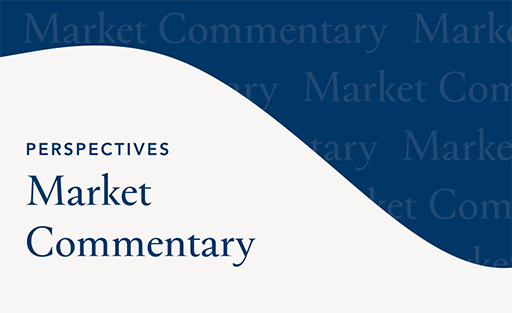2010–2019: The Decade in Review
Over the last decade, many events have occurred that have affected the economy, the stock market, and the level of interest rates. Let’s take a look at this period—at the market circumstances entering the decade, what has actually happened, and what we might have learned from it.
Entering 2010, the market (as measured by the S&P 500 Index) had just gone through a rollercoaster ride, experiencing a 49% decline from 2000 to 2002, followed by a 101% increase over the next five years, and finally a 57% decline from 2007 to 2009. The decade 2000 to 2009 was termed a “lost decade” for stock investors, who lost 1% per year in annual total return over the decade. Although the market had a strong year in 2009, it had only recouped half of the losses it suffered in the 2007–2009 bear market. It was around this time that the word “bubble” made its way into the common financial vernacular, as the technology stocks and housing markets both boomed and burst. 10-year U.S. Treasury Bonds were yielding 3.8% at year-end, which were low relative to recent history at that time. Unemployment peaked at 10%, slightly below the 10.8% reached in 1982.
“The decade 2000 to 2009 was termed a ‘lost decade’ for stock investors…”
Forecasting the decade ahead, Wall Street did what it does best—use history a little and extrapolate recent events a lot. The 2009 $787 billion stimulus package was designed to improve economic growth a bit, as was quantitative easing, where central banks purchase government bonds and inject money back into the banking system, which then would lower interest rates and encourage lenders to lend more and borrowers to borrow more. Bond strategists predicted that, with a growing economy and relatively low interest rates, bond yields would likely go higher in the years ahead.
So, with the consensus predicting higher but moderate economic growth, higher bond yields, and generally higher but muted stock market growth due to the recent fallout from the global financial crisis, what actually happened?
“As always, many economic events have affected the markets in the past decade.”
As always, many economic events have affected the markets in the past decade. Let’s look at a few:
<br>
Concerns about the Eurozone and Its Debt
There was concern in 2010–2011 that Greece may default and economic volatility in other member countries might cause the European Union to unravel. Subsequent aggressive action by the European Central Bank helped keep the European Union alive.
<br>
Volatility in Oil Prices
Oil prices rallied to a peak of over $110 in 2014, only to drop over the next few years by over 70%. This caused a lot of instability in countries where oil production is a critical part of their economy, as well as in companies who use oil as an important input to their products.
<br>
Brexit
In 2016, the UK voted to exit the European Union and has spent the past three years trying to determine how to do it most effectively. Since London is a major financial and banking center, Brexit has caused a lot of disruption in the European banking system.
<br>
The Election of President Trump
Love him or loathe him (and we know few people who don’t have a strong opinion), the election of President Trump has coincided with a strong stock market, which has risen 44% since he was elected. His policies are certainly more growth-oriented than either of his most recent Republican and Democratic predecessors.
<br>
Trade and Tariffs
Front and center of today’s concerns is an impending and ongoing trade war with China, and the potential for higher tariffs and stifled economic growth for both countries. Most economists believe that “no one wins a trade war,” but the President believes that his negotiating skills can at least improve the United States’ position with its trading partners.
“Front and center of today’s concerns is an impending and ongoing trade war with China…”
Having reviewed the economic events that have influenced the markets, let’s compare conventional wisdom at the start of the decade against what actually occurred:
<br>
U.S. Economy
First, let’s consider the economy. Over the entire decade, the economy has not had any recessions, but has averaged only 2.2% real GDP growth per annum, which is below its 50-year average of 2.7%. Post-World War II, the economy has averaged 3% growth in GDP, which our economy has not exceeded in any year since 2005. The economy has grown GDP by 2.5% per year thus far in President Trump’s term, which is a slight improvement over his recent predecessors, but still below the 50-year average (although unemployment is at a 50-year low).
“Many have looked ahead for the next recession or the proverbial ‘other shoe to drop,’ but the market climbed a ‘wall of worry’ throughout most of the decade, except for quick 15- 20% selloffs in 2011 and 2018.”
Stock Market
Next, a look back at the stock market. It did much better than expected, with the S&P 500’s total return growing at 12.8% per year through September 30 of this year, well ahead of its compounded annual growth rate of 9.5% since 1925. Many have looked ahead for the next recession or the proverbial “other shoe to drop,” but the market climbed a “wall of worry” throughout most of the decade, except for quick 15-20% selloffs in 2011 and 2018.
“Conventional wisdom seems to be that bond yields will be ‘lower for longer,’ which is the exact opposite of the forecasts 10 years ago.”
Bond Yields
Finally, at the end of the third quarter of 2019, 10-year U.S. Treasuries yielded 1.66%, less than half the yields at the start of the decade, allowing bond investors to earn handsome total returns throughout the decade as bond prices went higher while yields worked their way lower. Conventional wisdom seems to be that bond yields will be “lower for longer,” which is the exact opposite of the forecasts 10 years ago.
“…discuss with your investment counselor how to diversify appropriately, given your individual situation and your current financial goals.”
Now that we have looked back, how do we prepare best for what lies ahead? First, have a healthy skepticism around forecasters, no matter how authoritative they appear on television. Second, don’t worry too much about the macroeconomy. Recessions are difficult to predict—you have likely lived through a few already—and with the market at these levels, you have likely done quite well financially. Third, discuss with your investment counselor how to diversify appropriately, given your individual situation and your current financial goals. Finally, remember that there are always concerns about the economy and the stock markets, but they generally have risen and historically it has not been wise to bet against them over the long term.
The above information is for educational purposes and should not be considered a recommendation or investment advice. Investing in securities can result in loss of capital. Past performance is no guarantee of future performance.





